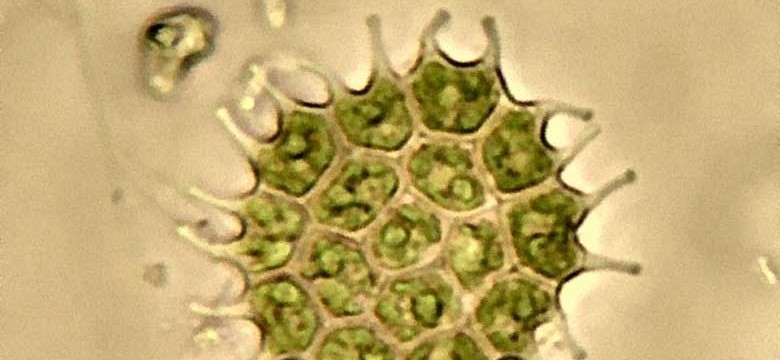Vitamin B12 Vegan
Vitamin B12 is an essential vitamin; without its many benefits, health cannot be maintained. It is produced by microorganisms and found almost exclusively in animal products. As a result, vegans and vegetarians often struggle to obtain a sufficient dietary supply of vitamin B12.
So, is it possible to consume vegan vitamin B12? This article aims to get to the bottom of this question.
Is Vitamin B12 Vegan?
Vitamin B12 is not actually an animal product, but is produced by microorganisms found in a number of places: soil, sea-based algae and the digestive tracts of animals, including humans.
Although vitamin B12 itself is vegan, most B12-rich food sources are nevertheless animal products – as we will see below.
Vitamin B12 and Vegan Foods
In traces, vitamin B12 also occurs as a microbacterial contaminant in and on plants, especially at the roots – however, these traces are so small that they are often hardly detectable. Additionally, the vitamin B12 content can vary according to factors such as location, soil quality and type of microorganism present – meaning that vitamin B12 from this source is too rare, unreliable and minuscule to be relied on as a vegan supply.
Moreover, today the soil flora in many regions has been so destroyed by industrial agriculture that fruits and vegetables grown there generally contain no more than minor traces of vitamin B12. Various fertilisers and pesticides have cause large parts of the soil flora to die.
Where is Vitamin B12 Made in the Body?
Even in the human body, vitamin B12 producing microorganisms can be found throughout almost the entire length of the digestive tract. The majority of these are found in the large intestine, where they produce quite significant amounts of vitamin B12. Unfortunately, our bodies are unable to utilise this B12, as it can only be absorbed in the small intestine. In this way, faeces contain a considerable vitamin B12 content – but this is not available to the body.
Nevertheless, a 1980 study published in the prestigious Nature magazine indicated that even the small intestine is able to produce a significant amount of vitamin B12 (1). The same can possibly be said for the mouth and throat. The is likely to be the reason why approximately 10-40% of vegans that were examined exhibited no signs of a vitamin B12 deficiency, despite their diet containing almost none (2).
However, to rely on this endogenous provision of vitamin B12 would be somewhat careless. Several studies have shown that between 60 and 90% of vegans are suffering from B12 deficiency; the risk here is clear and should not be underestimated (3-4).
More information on the topic can be found in the article: Vitamin B12 and Gut Bacteria
Vegan Vitamin B12 Supply and Health
Nowadays it can be particularly difficult to obtain a vegan B12 supply due to some general health factors:
- The bacteria that produces the vitamin needs a neutral to slightly acidic environment. Industrialised countries today have an increasingly high frequency of acidic foods, which can easily disturb the microbiological equilibrium of our digestive systems.
- Many people suffer from bacterial overgrowth in the intestine, which both prevents the growth of probiotics (good bacteria), and increases the production of vitamin B12 analogues that inhibit the absorption of genuine B12 (5).
- Extreme hygiene has meant that the likelihood of coming into contact with the relevant microorganisms is highly unlikely. Whilst animals and our ancestors would have obtained B12 from traces found on plants and berries; this is no longer the case.
- In order to produce vitamin B12 the bacteria require the trace element cobalt, yet for many years now the cobalt content in humus has been decreasing.
These factors and others are likely to be the reason why most people are no longer able to self-produce vitamin B12.
Vitamin B12 in Animals
For animals, B12 production functions somewhat differently. Ruminants such as cows are able to self-produce sufficient quantities of B12 in their special stomach, the rumen; non-ruminant animals unintentionally consume microorganisms, insects, soil, faecal matter and other vitamin B12 as they graze and forage for food.
This explains why animals that are herbivores do not require further sources of vitamin B12, unlike most vegans living in the western world. However, animals living in captivity or on farms are often given B12 or cobalt supplements, because there is no longer a natural source available.
Vegan Supply: Endogenous Vitamin B12
In our research for this website we tested a number of vegans for vitamin B12 deficiency and remarkably we found that some exhibited no signs of a shortage. They had some astonishing similarities, such as they:
- Consumed a totally or mostly raw food diet.
- Grew a proportion of their food themselves.
- Lived in a very health conscious manner, and had a history of detoxing and fasting.
- Led a spiritual life, practiced yoga, meditation and similar activities likely to contribute to low stress levels.
Theses: Vitamin B12 for Vegans
These observations, which certainly do not claim to be scientific due to the very small experimental group, permit some speculative theses:
- It is theoretically possible to obtain a vegan B12 supply.
- This is achieved through specific endogenous microorganisms.
- It requires a high level of physical health, in particular a healthy intestinal flora.
- It is dependent on the presence of the right microorganisms (probiotics).
- A low stress level is favourable (which leads to a lower B12 requirement), high consumption of raw foods (which leads to an alkaline diet) and minimal exposure to pollution.
The Vitamin B12 Cobalt Compound
Vitamin B12 producing microorganisms are heavily dependent on a supply of the trace element cobalt; the central atom of vitamin B12 (hence the name, cobalamin).
Agricultural observations show interesting developments: cows with a normal diet that consume grass can no longer survive without cobalt or B12 supplements. Due to decreasing cobalt content in fodder and grass, calves can die as a result of B12 deficiency. The deficiency leads to rapid weight loss, anaemia and ultimately death. Therefore, cows almost always rely on supplements today for either cobalt or vitamin B12.
Nowadays even some plants die without additional cobalt provisions. In particular, soy beans are often fertilised with cobalt as there tends to be low cobalt levels in the humus where they are grown.
This raises an interesting question: is it possible that the human body’s own B12 production is prevented simply by the fact that our supply of trace elements is becoming more and more critical, as is the case with animals kept on industrial farms?
Exact figures are not available for cobalt, however studies on similar minerals have shown that almost all minerals and trace element levels continue to decrease (6). Dan Reeter, a researcher at the Bio-Systems Labs in Salida, Colorado is certain that cobalt soil content has dropped significantly:
“I can say with certainty there’s a decline of soil cobalt. Confirm this for yourself. Simply to pick any [agriculture] magazine—they all push cobalt supplements, spurred by [the] B12-poor condition of crops” (7).
Vitamin B12, the Vegan Diet and Industrialisation
All of these factors point towards an interesting conclusion: although a vegan diet cannot sufficiently cover the body’s vitamin B12 requirement, this has less to do with the vegan diet per se, and is more as a result of environmental changes that result from industrialisation and the unnatural way of life it has caused.
Industrial agriculture leaches the soil and destroys the microbial flora, lowering the nutritional value of foods grown in it. Typical lifestyles involving unhealthy diets, high stress and often irritated intestinal flora means that the body is in need of even higher levels of vitamin B12.
It is interesting how the condition of the soil mirrors the condition of the intestinal flora: in both circumstances, the natural balance is adversely affected by unnatural lifestyles.
Obtaining Vitamin B12 as a Vegan
In light of this information, unfortunately the conclusion remains the same: today vegans are mostly dependent on an additional intake through B12 supplements. The reason for this has nothing to do with vegan diets being inadequate, but that the purity and rawness that is necessary in plant-based foods to provide B12 is hardly possible in today’s environment.
A healthy lifestyle, systematic build-up of the intestinal flora, nutrient-rich alkaline foods and a good general health are prerequisite requirements for the body’s endogenous production of B12, without the need for supplements.
Unfortunately, most people cannot fulfil these requirements today; fortunately, there are sufficient vegan vitamin B12 supplements to cover the daily requirement. With the help of this small supplement, a vegan diet can be counted among the healthiest diets of all.
How Much Vitamin B12 do Vegans Need?
It is unrealistic to assume that there is a specific, single amount of vitamin B12 required by all vegans. In reality, there are multiple factors that affect an individual’s requirement for and absorption of B12. Two factors with a major impact are:
- General health (particularly in the stomach and gut)
- Stress levels
From here it is possible to create three rough profiles, from which vitamin B12 dosages are calculated:
- Optimal health, as described above —> 5-10 µg/day
- Good health, moderately healthy lifestyle —> 250 µg/day
- High stress levels, athletes or people very unhealthy lifestyle (smoking, drug consumption etc.) —> 500 µg /day
As in all cases, we recommend pure B12 supplements without additives, since they can partially hinder absorption. In regards to B12 active ingredients, methylcobalamin or a combination of methylcobalamin and hydroxocobalamin should be chosen. The latter can be particularly advantageous due to its additional detoxifying effect and good storability.
Sources
- M. J. Albert, V. I. Mathan & S. J. Baker. Vitamin B12 synthesis by human small intestinal bacteria. Nature 283, 781-782 (21 February 1980). doi:10.1038/283781a0
- Contribution Of The Microflora Of The Small Intestine To The Vitamin B12 Nutriture Of Man. Nutrition Reviews, 38: 274–275. doi: 10.1111/j.1753-4887.1980.tb05958.x
- Herrmann W, Schorr H, Obeid R, Geisel J. Vitamin B-12 status, particularly holotranscobalamin II and methylmalonic acid concentrations, and hyperhomocysteinemia in vegetarians. Am J Clin Nutr 2003;78:131–6
- Ibrahim Elmadfa and Ingrid Singer: Vitamin B-12 and homocysteine status among vegetarians: a global perspective. Am J Clin Nutr 2009 89: 1693S-1698S
- LAWRENCE J. BRANDT, LESLIE H. BERNSTEIN, WAGLE ABDUL; Production of Vitamin B12 Analogues in Patients with Small-Bowel Bacterial Overgrowth. Annals of Internal Medicine. 1977 Nov;87(5):546-551.
- Thomas D. A study on the mineral depletion of the foods available to us as a nation over the period 1940 to 1991. Nutr Health. 2003;17(2):85-115. Review. PubMed PMID: 14653505.
- http://www.carbon-negative.us/soil/cobaltb12.htm


